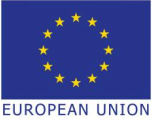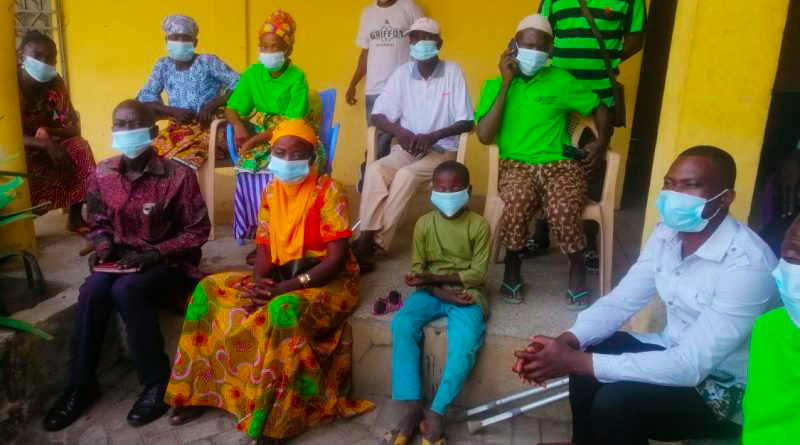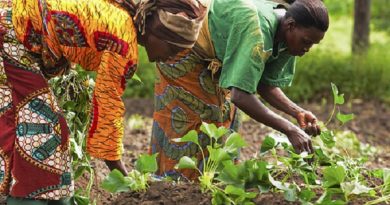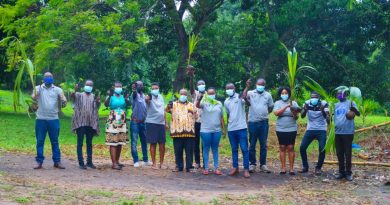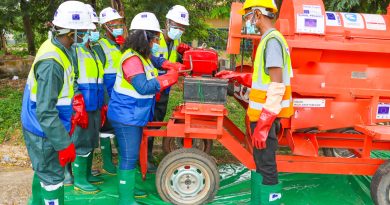Farmers with Physical Disabilities Praise the European Union
Some disabled farmers in the Ejura-Sekyedumasi Municipality of the Ashanti Region have expressed appreciation to the European Union (EU) for funding the ReDIAL project aimed at supporting disabled and other marginalised farmer groups in the municipality. According to them, their excitement is hinged on the fact that the project seeks to deliberately improve their livelihood through sustainable agriculture.
Among other interventions, the EU through the Research for Development and Innovation Agriculture and Learning (ReDIAL) project is seeking to reduce post-harvest loses through innovative threshing technologies for these marginalized groups.
The Ejura-Sekyedumasi municipal with over 80 farming communities is one of the five (5) beneficiary zones of the project.
Ayesha Ibrahim, the chairperson of the Disability Association of Ejura-Sekyedumasi in an interview explained that, disabled farmers in the municipality have thus formed an association to enable them understand the ReDIAL project, share knowledge and chart the path to sustainable agriculture which will help members of her association.
Disabled farmers in the Ejura-Sekyedumasi municipality mainly grow Maize, rice, beans, among others but are constrained by challenges such as unpredicted rainfall patterns, disease infestation, high post- harvest losses and soil fertility problem.
Despite these challenges, farmers with disabilities, according to her have been operating as individual farmers over the years because “there are no intervention targeted at us but the ReDIAL has been the single project that is uniquely targeting us, motivating us to come together”.
Explaining the ReDIAL project, Mr. Kyei Yamoah, project manager said the ReDIAL project is a four (4) years European Union (EU) funded project which is a subsidiary of the larger project known as DESiRA. The ReDIAL project is being implemented by a consortium of 3 partners namely Friends of the Nation (FoN), Tropenbos Ghana and The Faculty of Renewable Natural Resources (Kwame Nkrumah University of Science and Technology -KNUST) together with two (2) other private sector partners, SAYeTECH company and SESI Technology.
Mr. Kyei explained that the ReDIAL project is being implemented in the following five (5) Districts and Regions with the ecological zones: Yendi Municipal of the Northern Region, Techiman Municipality of the Bono East Region, Sefwi Wiawso District of the Western North Region, Ejura-Sekyeredumase Municipal of the Ashanti Region, Kwahu Afram Plains North District of the Eastern Region. He noted that these districts are some of the major food basket areas in Ghana and they produce a lot of grains including maize, rice, etc. He concluded that the ReDIAL project is fostering innovation in improving soil fertility in Ghana by generating scientific knowledge and data while applying innovative technology to improve threshing of Grains and Cereals.
